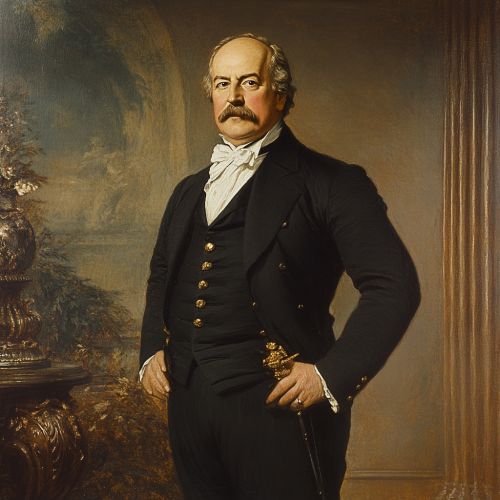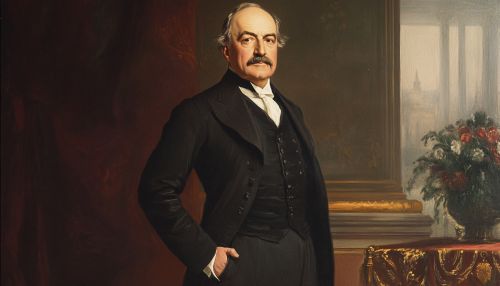Bismarck
Early Life and Background
Otto von Bismarck, born on April 1, 1815, in Schönhausen, Prussia, was a prominent statesman who played a crucial role in the unification of Germany. His family belonged to the Junker class, which was the landed nobility of Prussia. This background provided Bismarck with a deep understanding of the political and social structures of his time, which he would later leverage in his political career. Bismarck's education at the University of Göttingen and the University of Berlin exposed him to the ideas of the Enlightenment and Romanticism, although he was more inclined towards conservative political thought.
Political Career Beginnings
Bismarck's political career began in earnest when he entered the Prussian civil service. However, he soon left this position, dissatisfied with bureaucratic life. His entry into politics was marked by his election to the Prussian Diet in 1847. Bismarck quickly established himself as a staunch conservative, opposing the liberal movements of the time. His speeches and writings during this period reflect his belief in the divine right of kings and the importance of a strong, centralized state.
Rise to Power
Bismarck's rise to power was facilitated by his appointment as the Prussian ambassador to Russia and later to France. These positions allowed him to develop a keen understanding of European diplomacy. In 1862, King Wilhelm I appointed Bismarck as the Minister President of Prussia. Bismarck's tenure was characterized by his Realpolitik approach, which emphasized practical and pragmatic solutions over ideological considerations. He famously stated that the great questions of the day would be decided not by speeches and majority decisions but by "iron and blood."
The Unification of Germany
Bismarck's most significant achievement was the unification of Germany. He orchestrated three wars that were pivotal in this process: the Second Schleswig War against Denmark in 1864, the Austro-Prussian War in 1866, and the Franco-Prussian War in 1870-1871. Each conflict was carefully engineered to isolate Prussia's enemies and consolidate its power. The victory in the Franco-Prussian War led to the proclamation of the German Empire in 1871, with Wilhelm I as the Emperor and Bismarck as the Chancellor.


Domestic Policies
As Chancellor, Bismarck implemented several domestic policies that shaped the newly unified Germany. He introduced the Kulturkampf, a series of measures aimed at reducing the influence of the Catholic Church in state affairs. Although initially successful, the Kulturkampf eventually faced resistance and was scaled back. Bismarck also pioneered the modern welfare state by introducing social insurance programs, including health, accident, and old-age insurance, to placate the working class and undermine the appeal of socialism.
Foreign Policy and Diplomacy
Bismarck's foreign policy was marked by his efforts to maintain peace in Europe and secure Germany's position as a great power. He established the Triple Alliance with Austria-Hungary and Italy, aimed at counterbalancing the influence of France and Russia. Bismarck's diplomacy was characterized by complex alliances and treaties, which he used to isolate France and prevent the formation of hostile coalitions against Germany. His dismissal in 1890 by Kaiser Wilhelm II marked the end of an era in German foreign policy.
Legacy and Impact
Bismarck's legacy is a subject of considerable debate among historians. He is often credited with the creation of a unified German state and the establishment of Germany as a major European power. However, his authoritarian methods and reliance on military force have also been criticized. Bismarck's policies laid the groundwork for both the strengths and weaknesses of the German Empire, influencing its political landscape well into the 20th century.
